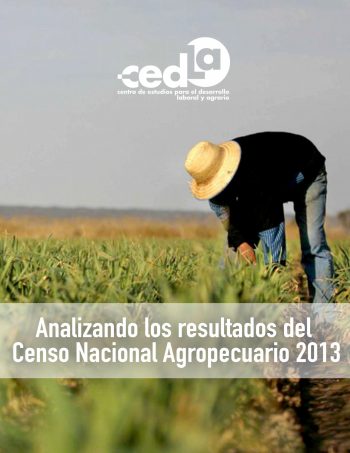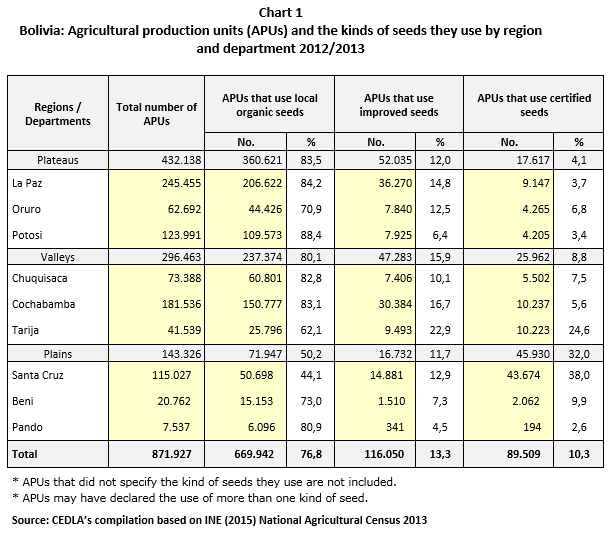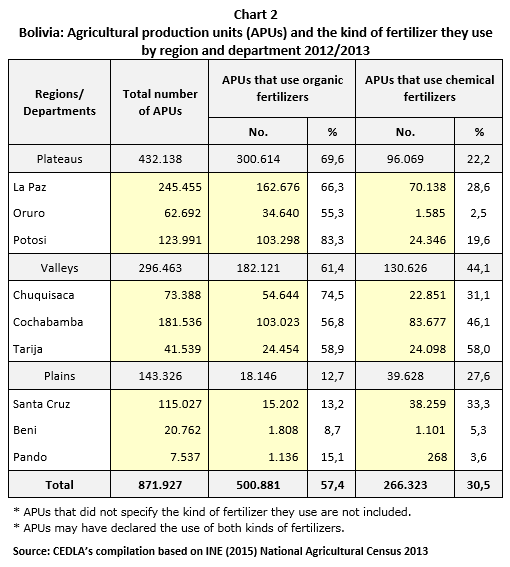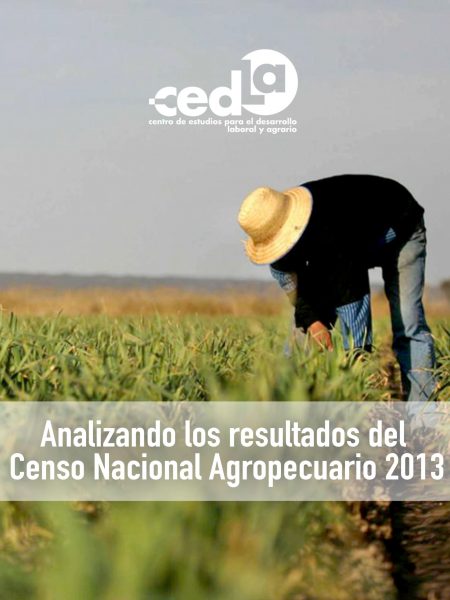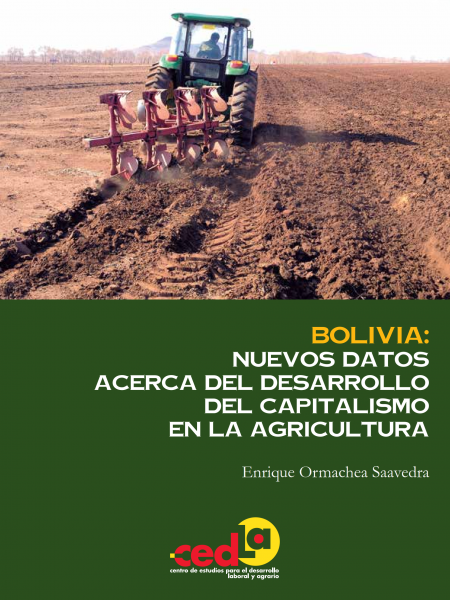Agrarian production and use of supplies
- Descripción
- Información adicional
Descripción
The data presented in the Agricultural Census 2013 reveal that in eight out of the nine departments, with Santa Cruz being the exception, the majority of agricultural production units (APUs) still use local organic seeds; conversely, improved seeds –which are produced through more specialized methods, like controlled pollination– and/or certified seeds are only used by a small proportion of APUs. Both improved seeds and certified seeds –the latter having gained relative importance in Santa Cruz and Tarija– are generally used by APUs strongly connected to the markets, and, consequently, more specialized in the production of certain crops.
Since the Census does not give any kind of information on the extension of land that has been sown with these three types of seeds, we consider convenient to include data provided by the Instituto Nacional de Innovación Agropecuaria y Forestal (INIAF). According to their research, 54% of all farmed lands in the country (1,8 million ha.) use INIAF’s certified seeds. Crops with the highest demand for certified seeds are: soy (which makes massive use of genetically modified seeds), potato, corn, wheat and sorghum [1].
Both the plateaus and the valleys present a significant number of APUs making use of organic fertilizers; in contrast, APUs in the plains barely use this type of fertilizer. However, there is an increased use of chemical fertilizers in the departments of the high and medium lands like Tarija, Cochabamba, Chuquisaca and La Paz.
In general, crops destined to the market are fertilized with chemical products, whereas crops for self-consumption are usually fertilized with organic products.
As for pest and disease control in crops, the data show that a significant proportion of APUs across the country (45,8%) use chemical products to counteract these problems. 10,2% of APUs still make use of natural products –such as pesticides made of garlic, onion, pepper, tobacco, etc. –, and 6,4% resort to biological control; i.e. live organisms that have the ability of controlling the population growth of another (unwanted) organism.
Lastly, although a good number of APUs use local organic seeds, organic fertilizers and natural or biological products for pest and disease control, only 15.260 APUs –meaning 1,7% of all APUs registered in the census– present crops that have been certified as organic.
[1] La Razón, February 15th 2016
La Paz, November 29th 2016.
Información adicional
| Autor | |
|---|---|
| Catálogo | Analizando los resultados del Censo Nacional Agropecuario 2013 |
| Categorías | |
| Gestión |

